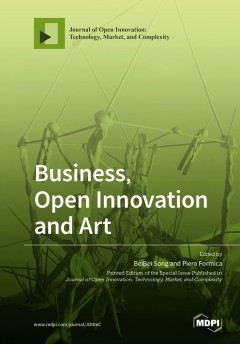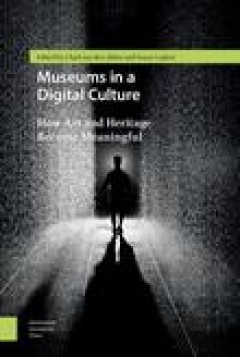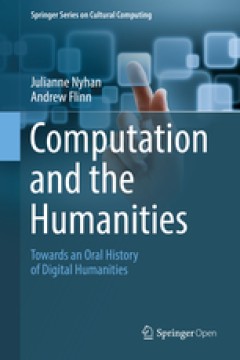Filter by

Business, open innovation and art
After its predecessors turned humans and organizations into machines, the Fourth Industrial Revolution is turning machines into humans. As digital machines acquire more and more cognitive intelligence, the development of humans becomes ever more vital, for society and business alike. Time has come to recognize the value of art and humanities. As the world experiences massive turbulence and comp…
- Edition
- -
- ISBN/ISSN
- 9783039366163
- Collation
- xvi, 135p.: ill.
- Series Title
- -
- Call Number
- 705 BUS b

Museums in a Digital Culture
The experience of engaging with art and history has been utterly transformed by information and communications technology in recent decades. We now have virtual, mediated access to countless heritage collections and assemblages of artworks, which we intuitively browse and navigate in a way that wasn't possible until very recently. This collection of essays takes up the question of the cultural …
- Edition
- -
- ISBN/ISSN
- 9789089646613
- Collation
- 143p.: ill.
- Series Title
- -
- Call Number
- 069.0285 VAN m

Computation and the humanities: towards an oral history of digital humanities
This book addresses the application of computing to cultural heritage and the discipline of Digital Humanities that formed around it. Digital Humanities research is transforming how the Human record can be transmitted, shaped, understood, questioned and imagined and it has been ongoing for more than 70 years. However, we have no comprehensive histories of its research trajectory or its discipli…
- Edition
- -
- ISBN/ISSN
- 9783319201696
- Collation
- 285 p.; 22 cm.
- Series Title
- Springer Series on Cultural Computing
- Call Number
- 384.648 NYH c

Poetics and politics
Far from teleological historiography, the pan-European perspective on Early Modern drama offered in this volume provides answers to why, how, where and when the given phenomena of theatre appear in history. Using theories of circulation and other concepts of exchange, transfer and movement, the authors analyze the development and differentiation of European secular and religious drama, within t…
- Edition
- -
- ISBN/ISSN
- 9783110536690
- Collation
- 280 p.; 22 cm.
- Series Title
- -
- Call Number
- 822 POE p

Perspectives on women’s higher education leadership from around the world
At this time in world history, numerous scholars have emphasized the importance of having greater diversity in leadership, and specifically having greater representation by women in leadership. In particular, providing women with greater access to higher education—and having role models for women in higher education leadership—has a beneficial ripple effect, given that postsecondary institu…
- Edition
- -
- ISBN/ISSN
- 9783038972648
- Collation
- 170 p.; 22 cm.
- Series Title
- -
- Call Number
- 301 PER p
 Computer Science, Information & General Works
Computer Science, Information & General Works  Philosophy & Psychology
Philosophy & Psychology  Religion
Religion  Social Sciences
Social Sciences  Language
Language  Pure Science
Pure Science  Applied Sciences
Applied Sciences  Art & Recreation
Art & Recreation  Literature
Literature  History & Geography
History & Geography